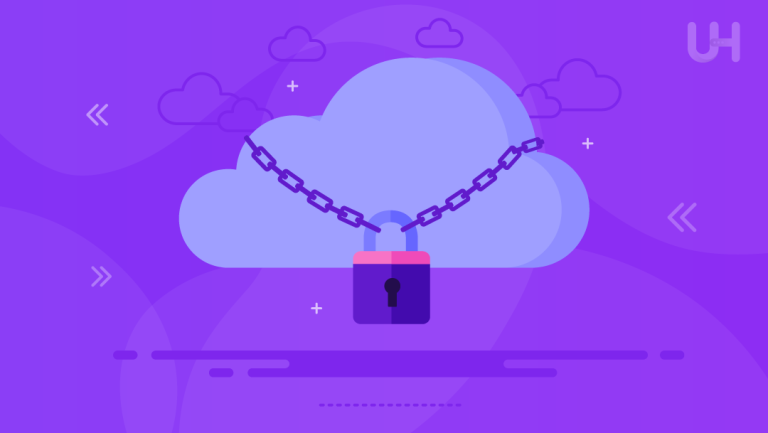PCI compliance basically means following a set of standards put in place to protect credit card information during and after a financial transaction. For an eCommerce store, being PCI compliant protects sensitive customer data and prevents costly data breaches. The arrival of online shopping has seen this kind of cyber threat increase exceedingly. Any given eCommerce business ought to make any time PCI compliance an essential ingredient.
In this blog, we will explain PCI compliance, why online stores must care, and how it helps them maintain customers’ trust while minimizing legal and financial risks related to data breaches.
What Is PCI Compliance?
PCI Compliance is a standard known as the Payment Card Industry Data Security Standard, developed for the protection of payment card information. The standards were developed by major credit card companies like Visa, MasterCard, American Express, Discover, and JCB to secure card transactions and reduce fraud risks.
Standards vary from data encryption to monitoring access control measures to network monitoring. PCI compliance in e-commerce stores is not an option but an obligation for any business willing to process, store, or transmit credit card data. Compliance by businesses means that the environment is secure against such security breaches and hence protects themselves and their customers.
Purpose and Importance
The cardinal objective of PCI compliance is to protect cardholder data from theft and fraud. With such security standards, there is less probability of breaching data, leading to the loss of sensitive customer information. In any e-commerce platform, the importance of being PCI compliant goes beyond just keeping the data safe. It instills confidence in customers through their expression of concern for safeguarding their financial information.
The results of non-compliance are very heavy fines, legal consequences, and loss of a company’s good name. Therefore, PCI compliance is important to secure payment data, retain business credibility, and avoid financial and legal consequences.
Key Security Standards
- Data Encryption: If cardholder data were to be transmitted, the encryption of such data should not permit unauthorized access. This ensures that no sensitive information goes into the public networks.
- Restrict Access to Data: Limit cardholder data access to individuals with a business needto-know it. Use multi-level authentication controls to prevent unnecessary access by unauthorized personnel.
- Network Security: Implement firewalls, intrusion detection, and anti-malware to protect against external threats. Such systems should be updated consistently based on emerging vulnerabilities.
- Monitoring and Testing: Networks should be regularly monitored for suspicious activity, and regular security testing should be conducted. This also involves trying to find weaknesses in security gaps through vulnerability assessments and penetration testing.
Protecting Cardholder Data
Among the central tenets of PCI compliance is the security of sensitive payment information throughout the transaction process, which includes protecting cardholder data. This includes encrypting data to prevent unauthorized access and ensuring that data stored is minimal or deleted when it is no longer needed.
Access to cardholder information can only be provided to employees who have been authorized to do so using strong authentication. It is about keeping data privacy and security up to date and performing vulnerability tests to find weaknesses that may be used against them. Doing all the above will reduce the possibility of data breaches, as an eCommerce store does not want its customers’ financial information to leak. This will help in building customers’ trust.
Compliance Levels Explained
Compliance with PCI has been categorized into four levels, depending on a company’s annual card transaction volume.
- Level 1 applies to merchants who process more than 6 million transactions every year or have suffered a data breach.
- Level 2 includes businesses that process between 1 and 6 million annual transactions.
- Level 3 includes merchants handling between 20,000 and 1 million eCommerce transactions per year.
- Level 4 includes merchants processing fewer than 20,000 e-commerce transactions or up to 1 million in total annual card transactions.
Each level maintains different and unique validation requirements based on the business’s risk profile, using either self-assessment questionnaires or an on-site PCI compliance audit.
Security with PCI-Compliant eCommerce Hosting
Choose UltaHost’s eCommerce Hosting for secure, PCI-compliant hosting solutions that protect your online store’s payment data. UltaHost helps you meet industry standards, safeguarding your customers and ensuring a seamless shopping experience.
eCommerce Vulnerabilities
- Phishing Attacks: Cyber criminals use phishing schemes to coax customers or employees to reveal sensitive information, including login credentials and credit card details.
- Weak Passwords: Poor password practices expose eCommerce to unauthorized access, where attackers can use weak login credentials to control sensitive systems.
- SQL Injection: This is a technique whereby hackers inject malignant code through input fields into the website’s database, possibly gaining unauthorized access to stored information on the way payment has been handled.
- Unpatched Software: Failure to keep software in step with the latest releases of updates, thereby leaving vulnerabilities available for hackers to manipulate and jeopardize any eCommerce store that has potential access to cardholder data.
Avoiding Data Breaches
Prevent data breaches by using strong measures to keep cardholders’ information safe. First, payment data should be highly encrypted, and second, software and security systems should be regularly updated to fix newly discovered vulnerabilities. Multi-factor authentication should be implemented to prevent unauthorized access to sensitive information.
Perform periodic security audits and vulnerability assessments to find out and fix any potential weaknesses. Educate your staff on cybersecurity best practices, like two-factor authentication, which can help avoid data exposure by accident. Using such a proactive approach, an eCommerce store can reduce the chances of having a data breach customers’ payment information, hence protecting the reputation.
PCI Compliance Requirements

- Protect the Network with a Secure Configuration: Deploy firewalls and switches that protect cardholder data and ensure current security configurations.
- Protect Cardholder Data: If payment data is sensitive, transmit it and store it in an encrypted state that is inaccessible to any potential threat.
- Develop a Vulnerability Management Program: Install anti-virus software, update systems with the most recent patches to address vulnerabilities, and protect against malware.
- Enforce strict access control: Limit access to payment information using the need-to-know principles and multi-factor authentication for anyone trying to access sensitive information or systems.
Hosting in Compliance With PCI
PCI compliance hosting is no greater than hosting utilized in compliance with the Payment Card Industry Data Security Standards, which address the safety of cardholder data. The compliant hosting environment consists of reliable security through firewalls, encryption, intrusion detection, and regular vulnerability scans to help detect possible cyber-attacks. This will ensure the protection of the online website from potential cyber threats.
Secondly, a server hosting provider that understands PCI requirements must be chosen and provide documentation to prove it. In addition, an organization’s respective applications and data must adhere to compliance in the environment where they are hosted. This will be considerably easier if the partner or the web host is already PCI compliant. It allows eCommerce stores to focus on securing customer data on their dedicated managed server and regulatory compliance.
PCI Compliance Audit
Preparation for the Audit
Before the PCI compliance audit, businesses must gather all necessary documentation, such as security policies, network diagrams, and system configurations. They should also conduct internal assessments to identify potential vulnerabilities and address any security gaps. Training staff on compliance requirements also helps ensure readiness.
During the Audit Process
The auditor will assess the company’s security, judge data privacy practices, and test whether standards related to PCI-DSS recommendations have been met. This will involve preparing the firewall settings, encryption protocols, and access controls. Then, the audit will report on deficiencies that must be addressed to achieve or maintain compliance.
Conclusion
PCI compliance is crucial to any e-commerce online store for the complete protection of data regarding customer payments and to ensure security within its atmosphere. Compliance with standards decreases the possibility of a data breach and secures sensitive information, thus supporting customer trust. Indeed, this will mean satisfying the requirements to avoid most potential legal and financial penalties. Seriousness about data security is another winning signal. Understanding PCI compliance levels, vulnerability management, and PCI-compliant hosting can all help organizations manage security risks.
Opt for UltaHost Protected WP Hosting to ensure PCI compliance and protect your eCommerce site. With advanced security measures, regular updates, and optimized performance, it maintains a secure environment for your online customers.
FAQ
What is PCI compliance?
PCI compliance is the process of following the requirements of the Payment Card Industry Data Security Standard to protect cardholder information without resulting in fraud.
Why is PCI compliance so crucial for these eCommerce stores?
It protects the information about their customers’ payments from data breaches and avoids legal fines. It also helps them win the customers’ confidence.
What are the different compliance levels according to PCI?
Four levels have corresponding validation requirements depending on the volume of card transactions processed annually.
How does PCI compliance protect cardholder data?
It secures sensitive payment information by encrypting access control and monitoring.
What if my eCommerce store is not PCI compliant?
Non-compliance may lead to monetary fines, legal implications, data breaches, and damage to your store’s reputation.
Do I need a PCI-compliant hosting provider?
Yes, a PCI-compliant hosting service will help your website meet the security standards necessary to protect the payment information.
How frequently should investigations of compliance with PCI be performed?
Auditing should be done at least once annually or during large changes in your eCommerce core.












